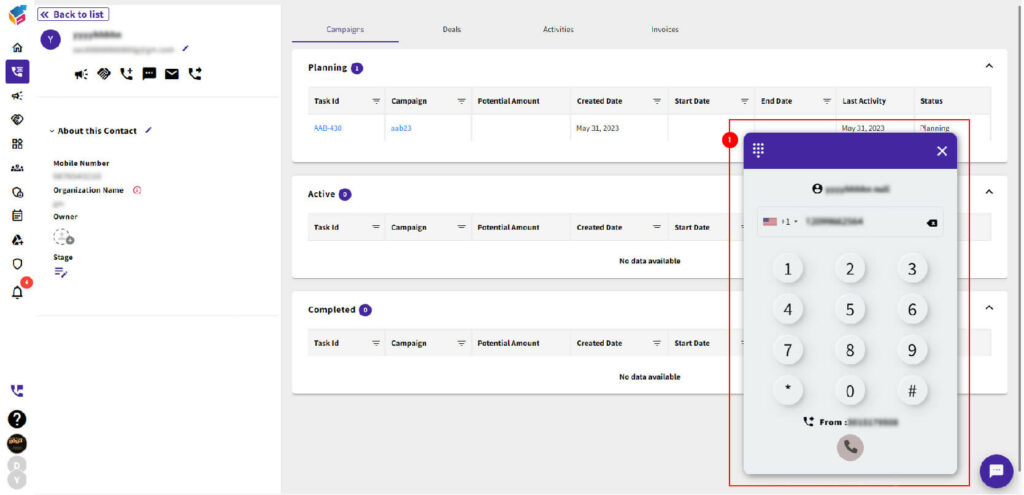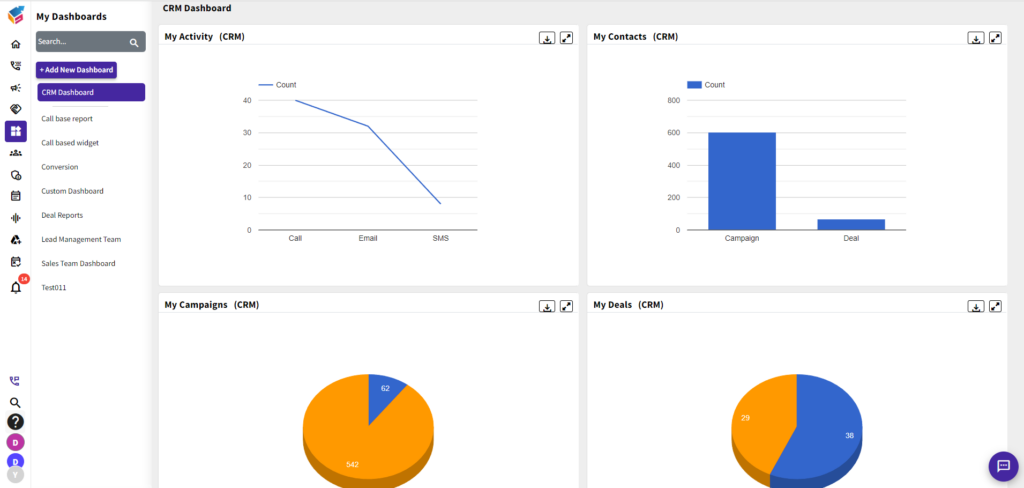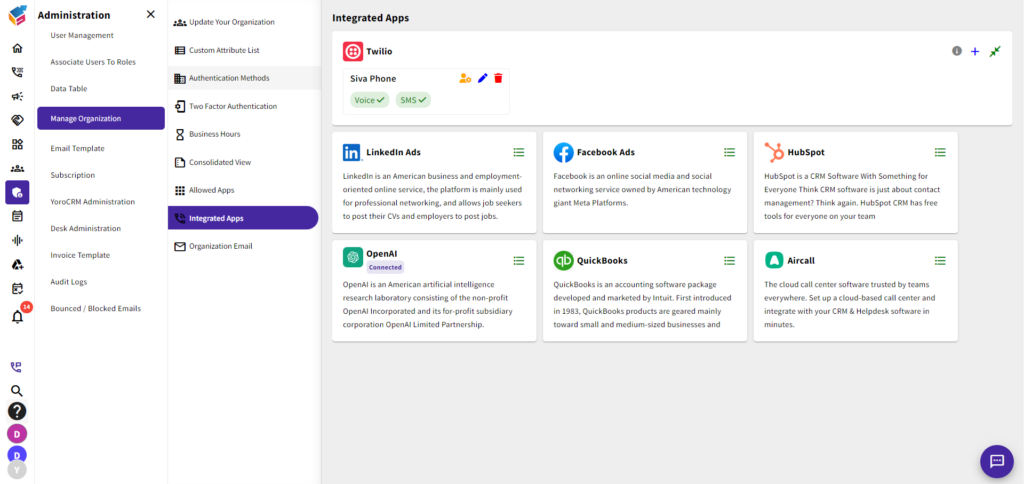Table of Contents
Sales calls play a crucial role in the sales management process, yet they often present challenges when it comes to efficient planning and execution.
When engaging in sales calls, several key factors must be taken into consideration. These include understanding the customer’s relationship with your company, being familiar with their buying process, and identifying ways to assist them in finalizing a deal. Explore the significance of sales tracking, call management, sales call software, and the effectiveness of managing sales phone calls in ensuring a streamlined and successful sales process.
In this article, we will explore ten vital tactics that should be considered during sales calls. By implementing these strategies, salespeople can enhance their prospecting efforts and achieve better results.
What is sales call?
A sales call is a communication interaction initiated by a salesperson with a potential customer experience or prospect, with the objective of promoting and selling a product or service. It typically involves a direct conversation between the salesperson and the individual or company being targeted as a potential buyer.
Sales calls can take various forms, including phone calls, video calls, or face-to-face meetings. During a sales call, the salesperson aims to engage the prospect, understand their needs and challenges, present the benefits of their product or service, address any concerns or objections, and ultimately persuade the prospect to make a purchase.

The purpose of a sales call is to build rapport, establish a relationship, and guide the prospect through the sales process, from initial contact to closing the deal. Sales calls require effective communication, active listening, and the ability to tailor the sales pitch to the specific needs and preferences of the prospect.
What are the Four Types of Sales Calls?
Sales calls can vary based on the purpose and approach. Here are four common types of sales calls:
Cold Calls:
Purpose: Initiating contact with potential customers who have not expressed prior interest in the product or service.
Approach: The salesperson reaches out to prospects without any prior relationship or connection.
Warm Calls:
Purpose: Reaching out to prospects who have shown some level of interest or engagement with the company, product, or service.
Approach: The salesperson contacts leads who have interacted with the company in some way, such as through inquiries, webinar attendance, or downloading content.
Follow-Up Calls:
Purpose: Continuing the conversation with prospects who have already been contacted, presented with information, or provided with a proposal.
Approach: The salesperson follows up on previous interactions to address questions, provide additional information, or move the prospect further along the sales funnel.
Closing Calls:
Purpose: Finalizing the sale and getting a commitment from the prospect to make a purchase.
Approach: The salesperson works to address any remaining concerns, negotiate terms, and guide the prospect toward making a decision to purchase.
These categories are not mutually exclusive, and sales strategies may involve a combination of these types of calls depending on the specific circumstances and the stage of the sales process.
10 sales call tips
Here are ten sales call tips to help improve your effectiveness:
- Research and Preparation: Before making a sales call, gather information about the prospect, their business, and their industry. This will enable you to tailor your pitch and demonstrate your understanding of their needs.
- Set Clear Objectives: Define specific goals for each sales call. Whether it’s scheduling a follow-up meeting, obtaining key information, or closing a deal, having clear objectives will keep you focused and increase your chances of success.
- Develop a Script Outline: While you don’t want to sound robotic, having a script outline can provide structure and ensure you cover all essential points during the call. Practice it to sound natural and conversational.
- Active Listening: Listening attentively is crucial during sales calls. Allow the prospect to express their needs, concerns, and preferences. This information will guide your pitch and enable you to address their specific requirements effectively.
- Highlight Value: Focus on the value proposition of your product or service. Clearly articulate the benefits it offers and how it solves the prospect’s pain points. Emphasize the return on investment and the positive impact it can have on their business.
- Handle Objections: Be prepared to handle objections that may arise during the sales call. Address them confidently and provide relevant information or examples that alleviate the prospect’s concerns.
- Build Rapport: Establishing rapport with the prospect is crucial for building trust and developing a relationship. Be friendly, professional, and genuine. Find common ground or shared interests to create a connection.
- Use Powerful Questions: Ask open-ended questions to encourage the prospect to share more about their needs, challenges, and goals. This will not only demonstrate your interest but also provide valuable insights for tailoring your pitch.
- Personalize the Pitch: Customize your message to the prospect’s specific situation. Show that you’ve done your research and understand their unique needs. This personalization will make the prospect feel valued and increase the relevance of your offering.
- Follow-up and Persistence: After the sales call, send a follow-up email or message to express gratitude for the prospect’s time. If there are next steps or action items, clearly outline them. Maintain regular follow-ups, as it often takes multiple touchpoints to close a deal.
Remember, practice and continuous improvement are key to mastering sales calls. Each call is an opportunity to refine your skills and learn from the experience.
7 recent and useful sales calling statistics
Data plays a crucial role for SaaS companies due to the following reasons:
- The Best Time to Make Sales Calls: Research indicates that the best time to make sales calls is typically between 8:00 AM and 9:00 AM, and between 4:00 PM and 5:00 PM. These time slots generally have higher answer rates and greater chances of engaging with prospects.
- Response Rates: According to industry data, the average response rate for sales calls is around 18%. This means that sales professionals can expect to connect with approximately 1 in 5 prospects they reach out to via phone.
- Follow-Up Persistence: Studies have shown that around 80% of sales require at least five follow-up calls after the initial contact. Following up consistently is essential for nurturing leads and closing deals.
- Call Duration: The ideal call duration for sales calls is between 5 and 10 minutes. Research suggests that calls within this timeframe have a higher likelihood of success, as they allow for effective communication without consuming too much of the prospect’s time.
- Voicemail Response Rates: On average, voicemail response rates are relatively low, with only about 4% of sales voicemails resulting in a callback. Therefore, it’s essential to have a compelling and concise message that encourages prospects to return your call.
- Personalized Messaging: Personalized sales messages have a significant impact. Studies have found that incorporating personalization in sales calls can increase conversion rates by up to 20%.
- The Power of Local Phone Numbers: Using local phone numbers instead of toll-free or unfamiliar area codes can significantly improve answer rates. Prospects are more likely to pick up calls from numbers that appear local to them, as they perceive them as more trustworthy and relevant.
Try call tracking software to manage sales calls
Using call tracking software or sales calling software can be a valuable tool for managing sales calls. Call tracking software allows you to monitor and analyze incoming and outgoing calls, providing insights that can help improve your sales processes.

Here are some benefits and features of call tracking software:
- Call Analytics: CRM software provides detailed analytics on call volume, call duration, call source, and more. This data helps you understand call patterns, identify peak call times, and make data-driven decisions to optimize your sales strategies.
- Call Recording: Many call tracking software options offer call recording capabilities. Recording calls allows you to review conversations, assess sales techniques, and provide valuable feedback to your sales team for training and improvement.
- Call Routing and Forwarding: Call tracking software enables you to set up intelligent call routing and forwarding rules. You can route calls based on criteria like geographical location, availability of sales representatives, or specific campaigns, ensuring that calls are efficiently directed to the right person.
- Lead Attribution: Call tracking software provides insights into which marketing campaigns or channels are generating calls and leads. This helps you measure the effectiveness of your marketing efforts and allocate resources to the most successful campaigns.
- Integration with CRM: Many call tracking software solutions integrate seamlessly with customer relationship management (CRM) systems. This integration enables you to capture call data directly into your CRM system, track leads, and have a comprehensive view of customer interactions.

- Performance Metrics: Call tracking software allows you to track key performance metrics, such as conversion rates, missed call rates, and call response times. These metrics help you evaluate the effectiveness of your sales team and make data-backed decisions for improvement.
- Call Whispering and Coaching: Some call tracking software offers call whispering functionality, where a manager can listen in on calls and provide real-time coaching to sales representatives without the prospect’s knowledge. This feature helps improve sales skills and increase conversion rates.
When selecting CRM software, consider factors such as ease of use, scalability, integration options, and pricing. It’s also important to choose a reputable provider that prioritizes data security and compliance with relevant regulations.
Conclusion
Finding new business prospects can be a challenging process that requires patience and persistence.
Nevertheless, skilled sales professionals understand that with every closed door, another one presents an opportunity. It is crucial to maintain motivation and continue efforts even in the face of obstacles.
Approach each sales call as a chance to gain insights into the customer’s needs and preferences, allowing you to provide the necessary information for them to make a purchasing decision.
Moreover, it’s important not to take rejection personally, as it is a natural part of the business landscape. By reviewing and implementing these steps in each sales call, you will gradually enhance your effectiveness and achieve a higher rate of successful sales.




